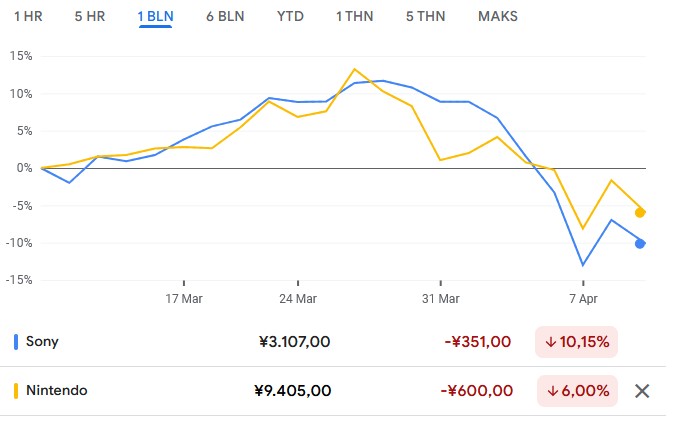
In a dramatic twist that blends politics and play, the Trump administration’s latest wave of tariffs has rattled the Japanese video game industry. Major players like Nintendo and Sony have seen their stock values take a hit following new trade policies targeting electronics and imported goods from China.
The Tariff Trigger
Former President Donald Trump’s economic strategy has once again placed international tech industries in the crosshairs. His newly enacted tariff package imposes a 34% reciprocal tax on Chinese imports, stacked on top of a pre-existing 20% charge, bringing the total to a 54% tariff on goods from China.
A previous 2024 report had predicted that the PS5 Pro could cost nearly $1,000 if a 60% tariff were implemented. While the actual rate landed slightly lower, the impact is still significant—especially for companies like Sony, which rely on Chinese manufacturing for many hardware components.
Stock Slump Hits Sony and Nintendo
At the time of writing, Sony’s stock has fallen 10,15% month-over-month on the Tokyo Stock Exchange. Nintendo, while faring slightly better, is still down 8.11% over the same period. These drops began in late March and early April 2025, coinciding directly with Trump’s announcement of the new tariff plan.
While both gaming giants are still in the green over a six-month timeline, the short-term volatility has rattled investors. The uncertainty around future pricing strategies is also playing a role in the market reaction.
No Price Changes Yet, But Delays Begin
So far, neither company has announced any official changes in hardware pricing. However, Nintendo has delayed U.S. pre-orders for the upcoming Switch 2, citing the need to “assess the potential impact” of the new tariffs. This suggests that companies are actively recalibrating their strategies in response to the shifting trade landscape.
Gaming Industry’s Next Move
Sources within the industry indicate that companies are exploring multiple responses, including restructuring supply chains, shifting production, and possibly partnering with U.S.-based assembly lines to reduce exposure to Chinese tariffs.
There’s also speculation that Sony may stagger its PS5 Pro release in North America or introduce region-specific pricing tiers to help mitigate the impact.
Global Implications
The U.S. remains one of the most lucrative gaming markets in the world. Trade disruptions not only raise production costs but also potentially price out American consumers, hurting demand. What was once a trade dispute about steel and semiconductors is now threatening to reshape the landscape of global gaming.
With tensions high and tariffs climbing, the Japanese video game industry faces a critical decision point. Whether through pricing shifts, delayed launches, or production pivots, companies like Sony and Nintendo will have to adapt quickly—or risk getting caught in the political crossfire.
Stay tuned with us for another updates!